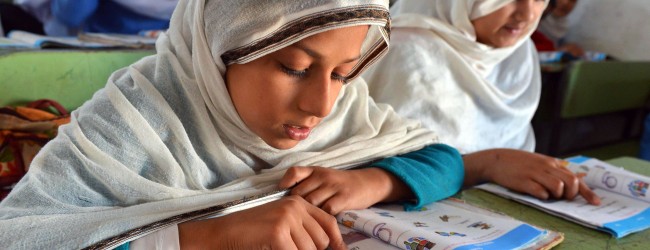
Nature 461, 11-12 (3 September 2009) | doi:10.1038/461011b; Published online 2 September 2009
Massive funding for Pakistan’s ailing universities holds many lessons for other developing nations.
Eight years ago, a task force advising Pakistan’s former military ruler, General Pervez Musharraf, laid out a bold plan to revitalize the country’s moribund research system: initiate a fivefold increase in public funding for universities, with a special emphasis on science, technology and engineering. The proposal was a radical departure from conventional wisdom on the economics of developing nations, which favours incremental investments. Sudden surges of cash are held to be dangerous in poorer countries, which often lack the institutions or the calibre of people required to make the most of such a windfall, and the money can easily be wasted or fall prey to corruption.
Nonetheless, Musharraf agreed to the proposal. The reforms began in 2003. And the results, which have now earned a qualified thumbs-up from a group of experts in science and education policy (see page 38), offer some valuable lessons for other developing nations.
First, conventional wisdom isn’t always right. Despite early doubts that Musharraf’s autocratic regime could allocate the new funds effectively, the experts cite initiatives such as a free national digital library and high-speed Internet access for universities as examples of success, as well as new scholarships enabling more than 2,000 students to study abroad for PhDs — with incentives to return to Pakistan afterwards. And they acknowledge that the years of reform have coincided with increases in the number of Pakistani authors publishing in research journals, especially in mathematics and engineering, as well as boosting the impact of their research outside Pakistan.
Second, human capital matters. One concern raised by the report published in this issue is that the 3,500 candidates for Pakistan’s new domestic PhD programmes have had lower qualifications than the candidates going abroad. But that is a situation that should correct itself over time as Pakistan’s schools improve. For the time being, the more important point is that Pakistan has opened up the chance of a research degree to many more people than in the past — including those who do not have wealthy families, or access to influential people, or good skills in European languages. Harnessing those reserves of talent is an integral part of any nation’s development.
Finally, accountability is essential. This was not a priority for the architects of Pakistan’s educational reform, partly because they were working for an autocratic regime, and partly because they were in too much of a hurry. The government seemed to be living on borrowed time, Musharraf’s science adviser, Atta-ur-Rahman, has recalled. On the one hand, politicians, judges and lawyers were pressing for a return to democracy; on the other, the influence of the Pakistani Taliban was increasing. Suicide bombers twice tried to assassinate Musharraf — once by blowing up his motorcade as he returned from making a speech to scientists. If the reformers didn’t get their programme in place quickly, they feared they might not get it in place at all.
The result, however, is that the body created to implement the reforms, the Higher Education Commission, has operated with minimal oversight by academics, parliamentarians or anyone else. There has been some waste, although no one has yet accused the commission of egregious abuses of power. But it has exhibited blind spots that an outside influence might have corrected — notably a total lack of investment in the social sciences and policy research, disciplines that encourage the asking of questions that autocratic regimes frequently dislike answering.
This must change. Pakistan is no longer a dictatorship. The elected government, under President Asif Ali Zardari, has expressed cautious support for continuing Musharraf’s education reforms. It therefore has an opportunity to build on their successes and correct their shortcomings — starting with an independent review of the commission’s performance.
[Editor: Full text is available online (here). This is being published here to compliment the above post on the Nature HEC article]
You must be logged in to post a comment.